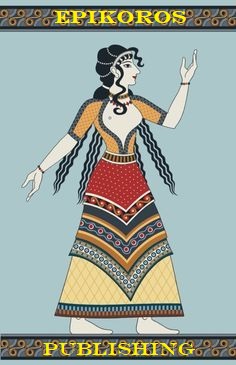Last week, I posted a somewhat humorous advert, which I boosted on my Facebook page for Medousa. And as I have been watching the responses to the advertisement, I am struck at the demographics. Almost all the ‘likes’ on the post were from women. And more than that, the women that liked the post seem to be concentrated in Israel/Palestine, in areas in which women are not known, traditionally, to have the same rights and freedoms as they might have in the West.
It is not my intention to start a debate on how people ought to live their lives, or proclaim that women are always oppressed in Islamic societies, or anything like that. However, the women of this region surely understand things like female empowerment, societal resistance to it, matters of honor and honor killings.
And, beyond this, the most enthusiastic responses I have received to my novel, both the “old” edition, and my re-write, have all been women. This kind of response is humbling to me as an author, and I am now impatient for my book to be readily available to all. It means a lot to me, because there is a reason I wrote this novel.
My book began as a scream against the injustice visited upon the heroine Medousa. I noted in the Afterword that one of the direct inspirations I had for writing a book about the life of Medousa, was the reaction of her sisters when she was slain. Their rage. Their anger. Their agony. Their heartsickness. Medousa is my cry against the injustice visited upon an innocent girl, and by extension, to all women who suffer as Medousa suffered.
The heart of the story is that Medousa, while in service to her Goddess, was attacked. She was brutally assaulted. Raped. And in that day of her extremity, she was betrayed by the Goddess to whom she had dedicated herself. Her faith was betrayed, and her Goddess punished her, for the crime of being ‘defiled.’ Medousa was raped, and then was punished for it. And she was punished for it by having her very humanity torn away from her, being sent away into exile, and then, after suffering for a sufficient time, death.
We see this occurring even today. A young college athlete rapes an unconscious woman, and receives a legal ‘slap on the wrist,’ and nothing more. The reason? The authorities don’t think it’s fair that a boy should have his future taken away from him because of a “moment of poor judgement” (in one instance described as “twenty minutes of action”). But was there any consideration of the woman whose life was destroyed by this attack? The value of her life is set at naught, when compared to the young man’s “bright future.”
A woman in a tribal region of south or central Asia is sexually assaulted. And when she dares go to her tribal elders for redress, they are just as likely to condemn her for bringing dishonor to her family. Even if the men are caught, they might merely be flogged, while the young woman is stoned to death.
How many men have been able to commit rapes and assaults on women, and never even face justice? They have positions of power, and wealth, and they move through their lives doing as they please. And women are silenced by being forced to sign legal contracts to keep silent. Or perhaps, they have their careers derailed. Or they are ridiculed, as society closes ranks behind their assailant, and decide to blame her for her own assault.
“And in these women’s lives, Medousa’s story continues. Every time a woman is attacked, and then–if she survives–is herself blamed for it…Every time a devout believer is not only abandoned by, but attacked by, the god, goddess, or gods (or, more accurately, its self-appointed representatives) s/he had been dedicated to… Every time a woman is cast out of her community for being who and what she is, through no fault of her own…With every ‘honor killing…’ With every rape cover-up…With every one–Medousa’s story continues.
But Medousa will not be silent; her cry of rage will echo throughout history for as long as her story is repeated in the human saga.”
I wrote Medousa in order to give her a voice. To cry out in rage on her behalf, and on behalf of all the women today who have had their voices silenced, or taken away. I have no doubt but that conservatives and right-wingers will call me “simp,” and “cuck,” and “mangina,” and whatever the hell else they call other males who try not to harbor prejudice, or allow their prejudices become bigotry.
I am almost sorry that I am not a woman, that my authorship of this novel might carry more credibility.
Nevertheless, my book may only be a Fantasy Novel; but the voice of the Gorgon will not be silenced. Medousa and her sisters will cry, and scream, and bellow, and rage, until there is justice. And until we learn to love and respect our fellow humans.

An Invocation
Medousa of the Serpents!
Winged Gorgon!
They used your name to frighten us,
But you do not frighten me;
No more this lie! No more this fear!
You belong to us, Mother and Protectress!
We speak your name in love!
We call upon you for help!
Greet us anew, as when we were children!
Medousa! Medousa! Medousa!
Mis-quoted from Emily Erwin Culpepper, 1986
———————————————————————————————————
*To tell the truth, I think that most of those ‘likes’ are from bots, not real women. Still– I would like to pretend to myself that the themes of my novel are striking a chord with people.






